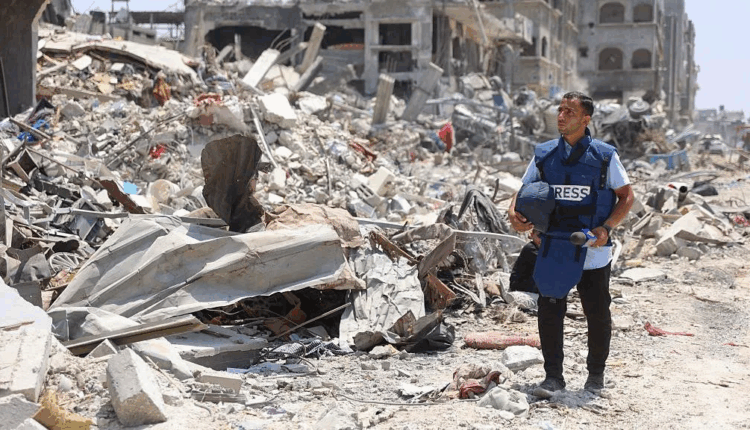Five Al Jazeera journalists were killed on Sunday in an Israeli strike on Gaza City.
Among them was 28-year-old correspondent Anas al-Sharif, who had become one of the network’s most well-known reporters covering the war.
According to Al Jazeera, the others killed were correspondent Mohammed Qreiqeh, cameramen Ibrahim Zaher and Moamen Aliwa, and crew driver-cameraman Mohammed Noufal. Two more people died in the attack, including local freelance journalist Mohammed al-Khaldi, hospital officials confirmed.
The strike targeted a tent used by journalists, sparking strong condemnation from the United Nations, Qatar – where Al Jazeera is based – and media freedom groups. Israel claimed Sharif was “the head of a Hamas terrorist cell” but provided little evidence. Al Jazeera, media rights groups, and Sharif himself had denied the accusation. The BBC reported that Sharif once worked for a Hamas media team, but some of his posts showed him criticising the group.
Jodie Ginsberg, CEO of the Committee to Protect Journalists, said there was no legal justification for killing Sharif. She stressed that international law only allows targeting active combatants, and nothing presented by Israel proved he was one.
Sharif, born in Jabalia in northern Gaza, had worked with Al Jazeera for about two years. He continued reporting from the north despite Israeli evacuation orders, often separated from his wife and two young children. A post in January showed him meeting his one-year-old son for the first time after 15 months of war.
Sharif’s work covered daily life in Gaza under bombardment and the killing of fellow journalists, including Ismail al-Ghoul and Rami al-Rifi in 2024. His father was killed in December 2023 when their home was struck. Hours before his death, Sharif had reported on heavy bombing in Gaza City.
Al Jazeera described him as a courageous and dedicated journalist who went to dangerous areas no other reporter dared to visit. His colleague Raed Fakih said Sharif endured famine and extreme hardship but felt it was his duty to speak for the people of Gaza.
“He carried loss, pain, and resilience,” Fakih said. “Even in the face of death, he persisted, because this is a story that must be told.”
Source: BBC


Comments are closed.